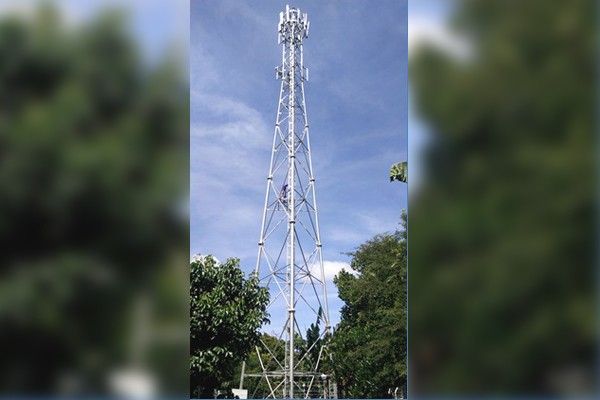Building of Globe cell site brings jobs, good employment benefits

MANILA, Philippines — One of the sectors hardest hit by the implementation of the enhanced community quarantine (ECQ) is the country’s workforce. Travel restrictions, health protocols, and practically stoppage of thousands of companies and industries all over Luzon have resulted in many layoffs and changes in how people work.
Companies like Globe are capable of becoming economic catalysts during these times. Keeping people connected requires a reliable network with capacity and coverage, and this is an area of opportunity to provide jobs.
If a local government unit allows Globe to build one single cell site in its area, potential jobs can be created. Even as the company employs people to design, engineer, and build a cell tower, it needs outside help. This is usually done through vendors and outsourced parties to do the actual deployment and later on the continuing operation of the cell site.
The limited movement of people from one municipality to another makes it practical for the company to enlist the services of skilled workers in the area where it will build the cell site.
At the beginning, people are needed to look for the ideal site location, getting approval from lot owners, and secure permits needed for the structure, plus other concerns.
“There are a lot of skilled manpower resources needed to set up one cell site. Other than Globe's own people there are many others involved. You will need civil engineers, construction people—masons, electricians, carpenters, welders, vertical construction workers, painters, and others to build the tower,” said Joel Agustin, senior vice president of Globe’s Program Development, Network Technical Group.
For a typical cell tower, at least 20 to 25 people will do civil work, 10 to 15 will work on the rooftop, five to seven will be assigned to do outside plant duties like laying fiber optic cables, pole erection, and other needed tasks.
Two or three people will be detailed for transport services while four to five more people from the company will also be needed for other concerns.
Once the tower is built the next phase is the installation of cell site equipment. At this stage, specially trained individuals and with highly regarded skill sets—electronics technicians, equipment installers, antenna riggers, and of course, engineers—will be needed.
Once on-air, another team will perform what is called network optimization. This process also requires drivers and radio network optimization engineers to perform drive tests and measurements to ensure that the new cell site is working correctly, providing additional coverage and capacity it was intended to provide.
On the ground, onsite foremen, field supervisors, a timekeeper, salary officer, and security guards will be hired. People who will deliver construction and other materials will also be needed.
“Even more interesting, while there is construction you will have people, usually from the local community, who will sell food, water, soft drinks, cigarettes and maybe even load to all the people working. Some workers would even rent a place near the site to save on travel time and all the hassles of passing through one checkpoint to another,” Agustin added.
Construction of a single cell tower may take 6 to 22 weeks, depending on design and location. For residents without a job, 6 to 22 weeks of a steady source of livelihood makes a big difference.
Not only will residents benefit if an LGU allows Globe to proceed with its expansion targets, but the whole municipality will also reap the rewards of having a reliable source of connectivity.
Local economies are expected to flourish because the community will be able to link up with prospective customers, investors, and even business partners.
LGUs now play a crucial role in providing the right connectivity infrastructure for workers and businesses as they shift to work from home, as well as online business and other transactions in the new normal.
“What happens in rural areas is that once a cell site is built, economic activities usually follow. Communities begin to thrive because opportunities have opened up for them. We have seen this in remote areas with poor signal before. Because of this, it is no longer an option for LGUs to approve sites where we can build or increase our capacity but an essential part of their governance agenda to ensure their community is enabled,” Agustin explained.
Amid the pandemic, Globe remains committed to bringing the best possible service to its customers. It has aggressively pushed for network expansion as people work from home and more companies rely on telcos for their internet connections.
For more information, visit the Globe website at https://www.globe.com.ph, and check out their social media pages at Twitter: @talk2GLOBE and Facebook: http://www.facebook.com/globeph.
- Latest


























